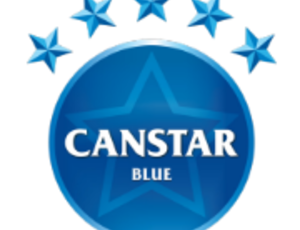Veolia has boosted its capacity to transfer and process the Food Organic and Garden Organic (FOGO) waste of 70,000 Western Australian (WA) households at the same time as the WA Government looks to increase FOGO processing.
Processing food organics waste, in addition to garden organics, at the North Bannister Resource Recovery Park facility, via the Bibra Lake facility, will divert even more waste from landfill, reducing greenhouse gases, and turn it into high quality compost.
Veolia’s Chief Operating Officer - Resource Recovery Craig Barker says WA’s agriculture sector stands to benefit from the circular economy too.
“One of the key reasons we invested to increase this processing capacity and can act so quickly to expand it again is because Veolia prides itself on being an Australian leader in ecological transformation and the circular economy. It was a no-brainer to invest in North Bannister two years ago, which is why we are so far out of the starting blocks already, and Veolia has the potential to duplicate the existing facility too.”
Mr Barker said the compost (branded as VitagroTM) coming out of North Bannister is due in large part to the $1.3 million decontamination plant Veolia installed, which ensures product quality from bin to compost because it is the only company in WA involved at every stage of the process.
“Veolia provides FOGO bins to households and educates businesses and residents about what should go into those bins to reduce contamination. Veolia collects the bins from the kerbside using trucks fitted with smart technology that also detects for contamination, and then we consolidate the FOGO at Bibra Lake, with its recent $1.2 million upgrade, before transporting to North Bannister,” said Mr. Barker.
“Those WA residents that have embraced their FOGO bins make a genuine difference to developing a circular economy and reducing greenhouse gas emissions coming from landfill. They make the job of sorting and decontamination much easier for us, and that matters because in states like WA, where poor sandy soils are common, it’s vital that residents and industry can trust the quality of compost they use.”
Mr. Barker said while Veolia is already moving quickly ahead with FOGO, including through its own standalone upgrades, it welcomes the WA and Federal Governments’ recent investment of $11.25 million in organic processing to help make the local circular economy a reality.
“Veolia has the capacity to rapidly expand our FOGO facilities but we can’t do it alone. It is only together with governments and residents that we can reduce the impacts of climate change, close the loop on a circular economy, and make the soils in WA far more fertile and productive,” he said.
“If we succeed in hitting our FOGO and net zero targets, it will be a win-win for governments and WA residents in every way - and could set a benchmark for how FOGO can be approached at a national level.
“It means there’s huge potential to transition to a three bin service in WA, so local councils can include FOGO without hesitation, because they’ll have more confidence stemming from Veolia’s additional capacity.”
...
Link to 360 video Bibra Lake facility here
Link to North Bannister timelapse video here
MEDIA CONTACT
Valeria Cheglov, Head of Communications and Public Policy | +61 0438 494 351| [email protected]
Veolia Group aims to become the benchmark company for ecological transformation. Present on five continents with nearly 220,000 employees, the Group designs and deploys useful, practical solutions for the management of water, waste and energy that are contributing to a radical turnaround of the current situation. Through its three complementary activities, Veolia helps to develop access to resources, to preserve available resources and to renew them. In 2022, the Veolia group provided 111 million inhabitants with drinking water and 97 million with sanitation, produced nearly 44 million megawatt hours and recovered 61 million tonnes of waste. Veolia Environment (Paris Euronext: VIE) achieved consolidated revenue of 42.885 billion euros in 2022. www.veolia.com/anz





